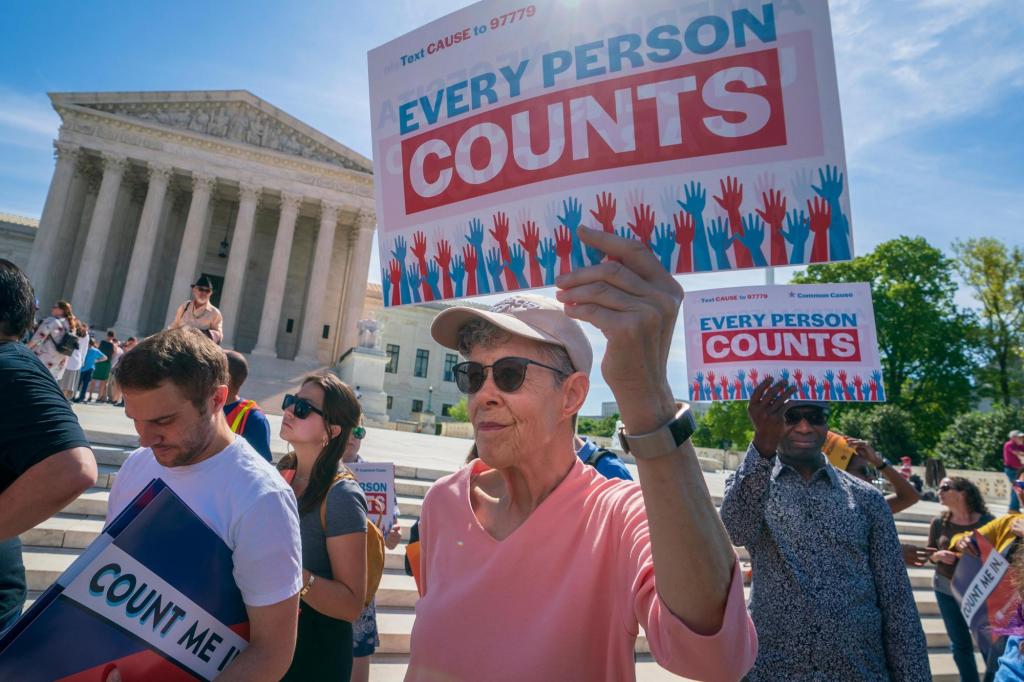
By MIKE SCHNEIDER
A U.S. Census Bureau advisory committee made up of scientific experts that was axed by the Trump administration earlier this year is resurrecting itself and meeting Thursday with no official blessing or formal ties to the statistical agency.
The reconstitution of the Census Scientific Advisory Committee, rechristened with an “Independent” in front of its name, is a defiant gesture by the research community against the Trump administration’s elimination last winter of three advisory committees made up of outside experts from private industry and academia.
Unlike in past meetings, no Census Bureau staffers will be involved directly or indirectly during Thursday’s conference.
“Will our scientific advice still find an ear at the Census Bureau? I do not know,” said University of North Carolina sociologist Barbara Entwisle, who chairs the committee. “However, it is a certainty that our recommendations will have no effect at all if we do not provide them.”
The decision to get the committee members back together is the latest effort by statisticians, demographers and other researchers to challenge statistical-system changes that they see as worrisome since President Donald Trump returned to the White House in January for a second term.
Since then, data sets related to gender, sexual orientation, health, climate change and diversity have disappeared from federal websites, and workers and contractors who had been data guardians at statistical agencies either have departed or been forced out by efforts to shrink the federal government. Last month, Trump fired the head of the Bureau of Labor Statistics after the agency made downward revisions to the number of jobs created in the spring.
Just last week, the Census Bureau said it “was not able to renew” a contract that maintained a website for an online community of users for its largest survey of American life.
And last month, Trump instructed the Commerce Department to have the Census Bureau start work on a new census that would exclude immigrants who are in the United States illegally from the head count, which determines political power and federal spending. The 14th Amendment says that “the whole number of persons in each state” are to be counted for the once-a-decade census, and any changes to how the census is conducted requires congressional approval.
During a confirmation hearing on Wednesday, Joyce Meyer, who has been nominated to be an under secretary of the Commerce Department, which oversees the Census Bureau, dodged a direct question about whether Trump should be able to conduct a new census without Congress changing the law, but said she would comply with the law.
Besides the Census Scientific Advisory Committee, the U.S. Commerce Department last winter killed the Census Advisory Committee, which advised on the upcoming 2030 census, and the National Advisory Committee, which offered insight on how to accurately count and collect data from racial, ethnic and other communities. At the time, U.S. Commerce Secretary Howard Lutnick said the committees’ purposes “have been fulfilled.”
A coalition of civil rights groups were dismayed by the committees’ elimination, describing them in a letter to Lutnick as “a major setback” for the bureau as it prepared for the 2030 census and modernized the work of data collection.
“Eliminating these committees … threatens the bureau’s ability to collect accurate, comprehensive demographic and economic data,” they said in the May letter sent by the Leadership Conference on Civil and Human Rights.
Before the committees were eliminated, the Census Bureau had appointed their members. The agency’s top leaders attended the committees’ biannual meetings and received their recommendations. Members of the advisory committees worked for free except for travel expenses and lodging for meetings.
In a statement, the Census Bureau said Wednesday that the agency gets outside input through a rulemaking process for the federal government that invites the public to make comments.
When asked if the Census Advisory Committee might follow the path of the reconstituted scientific panel, Arturo Vargas, its former chairman, said in an email, “We are still discussing options and determining how best to use the scant resources to have the most impact, and exploring how another independent advisory committee is valued added.”
Allison Plyer, a past chair of the scientific advisory committee, said that the Census Bureau has always benefited from the strategic advise of committee members who are experts in their fields.
“They don’t have that now,” said Plyer, chief demographer at The Data Center in New Orleans. “An outside perspective is incredibly important.”
Follow Mike Schneider on the social platform Bluesky: @mikeysid.bsky.social
Originally Published:



